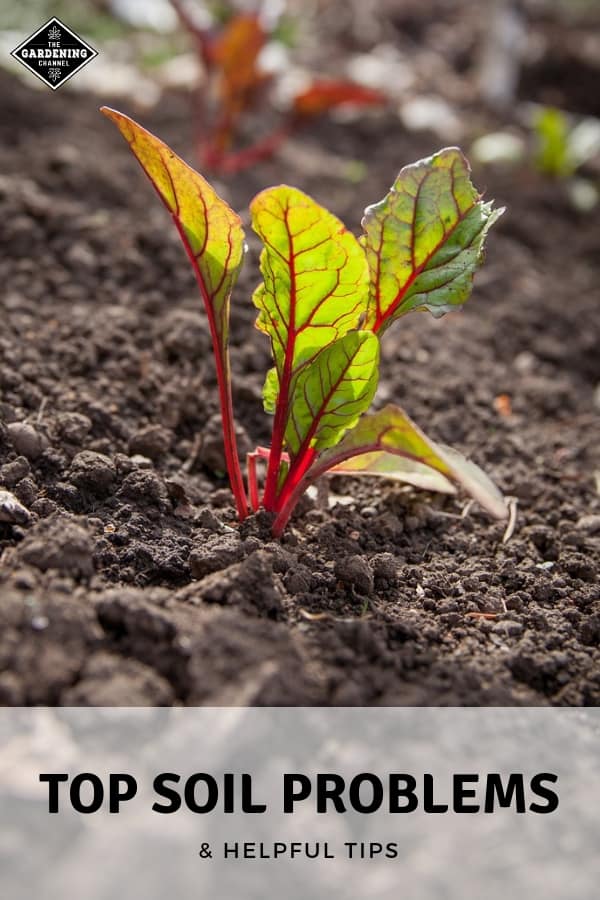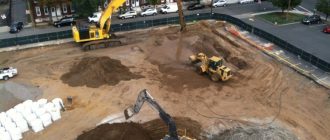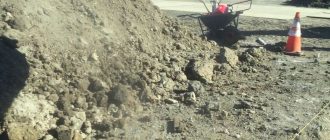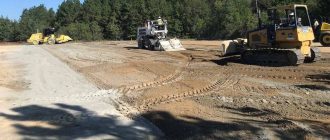
Common Problems Associated With Soil and Organic Soil Solutions
Are you struggling with nutrient deficiency in your soil? Is drainage becoming a major issue? Are depletion and pollutants affecting your plant growth? Look no further! Organic Soil Solutions is here to provide you with effective and sustainable solutions for all your soil problems.
At Organic Soil Solutions, we understand the importance of healthy soil for optimum plant growth. Our team of experts has developed organic remedies to tackle common soil problems such as compaction and fertility issues. With our natural products, you can say goodbye to salinization and acidification, restoring the balance and health of your soil.
“Organic Soil Solutions has transformed my farm! I had been struggling with nutrient deficiency, but their products helped me achieve remarkable results. My plants are now healthier and yield higher than ever before!” – John Adams, farmer
We pride ourselves on providing sustainable solutions that are not only effective but also environmentally friendly. Our organic approach ensures that your soil becomes a thriving ecosystem, promoting healthy plant growth and minimizing the need for chemical fertilizers and pesticides.
Don’t let poor soil quality affect your yields and agricultural success. Contact Organic Soil Solutions today and let us help you address and overcome any soil problem you may be facing. Together, we can create a greener and more productive future.
Understanding Soil Problems
Soil is a vital resource that supports life on Earth. However, it can be susceptible to various problems that can affect its overall health and productivity. It is crucial to understand these soil problems in order to address them effectively and ensure optimal plant growth. Here are some common soil problems:
1. Salinization: Excessive salt accumulation in the soil can lead to salinization, which hampers plant growth and reduces agricultural productivity.
2. Fertility issues: Soil fertility refers to the ability of soil to provide essential nutrients to plants. Soil fertility problems, such as nutrient deficiencies or imbalances, can hinder plant growth and crop yield.
3. Erosion: Soil erosion is the process of soil being washed away or blown away by wind and water. This can result in the loss of topsoil, which is rich in organic matter and nutrients, leading to decreased soil productivity.
4. Compaction: Soil compaction occurs when the soil becomes densely packed, reducing pore spaces and restricting the movement of air, water, and plant roots. Compacted soil can impede root growth and nutrient uptake.
5. Depletion: Continuous cultivation or improper land management practices can deplete the soil of essential nutrients, organic matter, and beneficial microorganisms, adversely affecting plant growth and soil health.
6. Drainage issues: Poor soil drainage can lead to waterlogged conditions, which can deprive plant roots of oxygen and cause root rot or nutrient leaching.
7. Pollution: Soil can be contaminated by various pollutants such as heavy metals, pesticides, and industrial waste. These pollutants can pose a threat to both soil health and human health if they enter the food chain.
8. Acidification: Soil acidification occurs when the soil pH drops below optimal levels, making it too acidic for most plants. Acidic soil can hinder nutrient availability and affect plant growth and productivity.
By understanding these soil problems, you can implement appropriate solutions and management practices to improve soil health and maximize the productivity of your plants. Organic soil solutions provide sustainable and environmentally friendly methods to address these soil problems and ensure healthy and fertile soils for optimal plant growth.
Detecting Soil Imbalances
One of the key factors in maintaining healthy soil is being able to detect and address any imbalances. Soil imbalances can lead to a variety of problems, including pollutants, erosion, depletion, salinization, poor drainage, reduced fertility, compaction, and nutrient deficiencies.
There are several ways to detect soil imbalances:
Soil Testing: Regular soil testing is an essential tool for detecting imbalances. Soil samples are collected from different areas of the field and tested for various parameters such as pH levels, nutrient levels, organic matter content, and soil texture. The results of these tests provide valuable information about the soil’s current condition and any imbalances that may exist.
Observation: A keen eye for observation can also help in detecting soil imbalances. Signs such as stunted plant growth, yellowing leaves, poor water infiltration, standing water, and high levels of weed growth can indicate imbalances in the soil. These observations should be accompanied by soil testing to confirm the presence of imbalances.
Plant Analysis: Analyzing plant tissue can provide insights into soil imbalances. By analyzing the nutrient content of plant tissues, it is possible to determine if plants are experiencing nutrient deficiencies or excesses. This information can help pinpoint specific imbalances in the soil and guide corrective actions.
Microbial Analysis: The health of the soil’s microbiome is crucial for nutrient cycling and overall soil health. Analyzing the microbial community composition and activity can provide insights into soil imbalances. Imbalances in the microbial community can lead to poor nutrient availability and other soil problems.
Spatial Variation: Soil imbalances can vary across a field or garden. By conducting a thorough survey and sampling at different locations, it is possible to identify areas with specific imbalances. This information allows for the targeted application of soil amendments to address those imbalances.
Taking the time to detect and address soil imbalances is crucial for maintaining healthy soil and achieving optimal plant growth. By understanding the areas where imbalances exist, it becomes possible to implement targeted solutions and improve soil health overall.
Managing Soil Acidity
Soil acidity can be a major challenge for gardeners and farmers alike. When the pH of the soil is too low, it can negatively impact plant growth and reduce overall soil fertility. Additionally, acidic soils are more prone to erosion and nutrient deficiency.
One of the main causes of soil acidity is the accumulation of acidic pollutants and the depletion of essential nutrients. In some cases, soil acidification can also occur naturally due to factors such as rainfall or the breakdown of organic matter.
To manage soil acidity, it’s important to monitor and adjust the pH levels of the soil. This can be done through the application of lime or other soil amendments that neutralize acidity. It’s recommended to perform regular soil tests to determine the appropriate amount of lime or amendments needed for your specific soil conditions.
In addition to adjusting the pH levels, it’s also crucial to address other soil health issues that may arise due to soil acidity. Acidic soils tend to have poor drainage and can become compacted, which further exacerbates the problem. Managing soil compaction and improving drainage can help mitigate the effects of soil acidity.
Using organic soil solutions can also be advantageous in managing soil acidity. Organic matter, such as compost or manure, can help buffer soil acidity and provide essential nutrients to the plants. Adding organic matter to the soil on a regular basis can improve soil structure, water-holding capacity, and overall soil fertility.
Overall, managing soil acidity requires a comprehensive approach that involves monitoring pH levels, adjusting soil amendments, improving drainage, and adding organic matter. By addressing soil acidity, gardeners and farmers can ensure optimal plant growth and maximize the productivity of their soil.
Improving Soil Drainage
Proper soil drainage is essential for promoting healthy plant growth and preventing a variety of common soil problems. When soil drainage is poor, excess water can accumulate and lead to nutrient deficiency, root rot, and overall poor soil fertility. Here are some effective solutions for improving soil drainage:
- 1. Avoid compaction: Compacted soil is unable to drain water properly. Regularly aerating the soil by loosening it with a garden fork or tiller can help improve drainage.
- 2. Prevent erosion: Erosion can significantly impact soil drainage. Planting ground cover or adding mulch can help prevent erosion and promote better water absorption.
- 3. Address salinization: Salinization, or excessive salt buildup in the soil, can negatively affect drainage. Regularly leaching the soil by applying excess water can help flush out the salts and improve drainage.
- 4. Correct acidification: Acidic soils can hinder drainage. Adding lime or other soil amendments to raise the pH levels can help neutralize acidity and improve drainage.
- 5. Avoid pollutants: Pollutants such as chemicals and heavy metals can accumulate in the soil and hinder drainage. Properly disposing of hazardous materials and avoiding excessive use of chemicals can help prevent soil pollution and maintain good drainage.
- 6. Prevent depletion: Over time, soil can become depleted of essential nutrients, hindering drainage. Regularly adding organic matter, such as compost or well-rotted manure, can improve soil structure and fertility, promoting better drainage.
By implementing these solutions, you can effectively improve soil drainage and create a healthier environment for your plants to thrive.
Addressing Nutrient Deficiencies
One common issue that can affect the health and productivity of soil is nutrient deficiency. Nutrients are essential for the growth and development of plants, and when they are lacking, it can lead to poor crop yields and plant health.
There are several factors that can contribute to nutrient deficiencies in soil. One such factor is salinization, which occurs when there is an accumulation of salts in the soil. This can make it difficult for plants to take up the necessary nutrients, leading to deficiencies.
Another factor is compaction, which occurs when the soil becomes tightly packed. This can limit root growth and prevent plants from accessing the nutrients they need. Additionally, soil depletion, caused by excessive farming or gardening practices, can result in a lack of nutrients in the soil.
Pollutants can also contribute to nutrient deficiencies. Chemicals and pollutants in the soil can interfere with nutrient uptake by plants, leading to deficiencies. Acidification, which occurs when soil pH becomes too low, can also impact nutrient availability and uptake.
To address nutrient deficiencies, it is important to focus on improving soil fertility. This can be done through various methods, such as adding organic matter, which can provide a source of nutrients for plants. Additionally, using fertilizers and soil amendments specifically formulated to address nutrient deficiencies can help replenish the necessary nutrients.

Erosion can also contribute to nutrient deficiencies, as it can wash away topsoil and nutrient-rich particles. Implementing measures to prevent erosion, such as planting cover crops or using erosion control techniques, can help retain soil nutrients and prevent deficiencies.
In conclusion, nutrient deficiencies in soil can have a significant impact on plant health and productivity. Addressing issues such as salinization, compaction, depletion, pollutants, acidification, and erosion are key to maintaining soil fertility and ensuring the availability of essential nutrients for plants.
Preventing Soil Erosion
Soil erosion is a serious problem that can lead to the loss of valuable topsoil and the degradation of land quality. It occurs when the top layer of soil is carried away by wind, water, or other natural processes. Soil erosion can result in the loss of key nutrients, the exposure of pollutants, and the deterioration of soil structure.
There are several factors that contribute to soil erosion, including salinization, acidification, erosion, nutrient deficiency, poor drainage, compaction, and the depletion of organic matter. To prevent soil erosion, it is crucial to implement effective strategies and practices that protect the soil and promote its health.
1. Plant cover crops: Growing cover crops such as grasses, legumes, or other plants can help prevent soil erosion. These crops form a protective layer over the soil, reducing the impact of raindrops and preventing the detachment of soil particles.
2. Mulching: Applying a layer of organic mulch, such as straw or wood chips, can help prevent soil erosion. Mulch acts as a barrier, reducing the impact of raindrops and preventing soil particles from being carried away by water or wind.
3. Terracing: Terracing involves creating step-like structures on slopes to slow down the flow of water, allowing it to infiltrate into the soil rather than erode the surface. Terracing is particularly effective on hilly or sloping landscapes.
4. Contour farming: Contour farming involves planting crops along the contour lines of the land, rather than up and down the slope. This helps to slow down the flow of water and prevent soil erosion.
5. Maintaining proper drainage: Good drainage is essential for preventing soil erosion. Properly designed and maintained drainage systems can help remove excess water from the soil, preventing it from becoming saturated and prone to erosion.
6. Avoid over-tilling: Over-tilling the soil can lead to compaction and the disruption of its structure, making it more susceptible to erosion. It is important to use appropriate tillage practices and minimize unnecessary disturbances to the soil.
7. Soil conservation practices: Implementing soil conservation practices, such as contour plowing, strip cropping, and windbreaks, can help prevent soil erosion. These practices help to reduce the impact of wind and water on the soil, protecting it from erosion.
By implementing these preventive measures and promoting sustainable land management practices, we can help prevent soil erosion and maintain the health and productivity of our soils.
Remember, healthy soil is the foundation for healthy crops and a sustainable environment.
Controlling Soil Pollution
Soil pollution refers to the contamination of soil by various substances, which can negatively affect plant growth and soil fertility. It is important to control soil pollution to ensure healthy soil and sustainable agriculture. Here are some common methods for controlling soil pollution:
1. Depletion of Pollutants: One effective method is to remove or reduce pollutants from the soil. This can be done through physical methods like soil excavation and washing, or through chemical methods like using adsorbents or solvents.
2. Nutrient Management: Proper nutrient management is essential for combating soil pollution. By providing adequate nutrients to plants, soil fertility can be improved, which helps the soil recover from pollution. This includes using organic fertilizers, compost, and other soil amendments.
3. Improving Drainage: Poor drainage can lead to waterlogging, which can contribute to soil pollution. By improving drainage systems, excess water can be removed, preventing the accumulation of pollutants and reducing the risk of soil contamination.
4. Addressing Acidification: Acidification of soil can lead to the release of toxic metals and negatively affect soil fertility. Adding lime or other alkaline substances can help neutralize the acidity and reduce the impact of acidification.
5. Soil Compaction Prevention: Soil compaction can lead to poor aeration and water infiltration, which can contribute to soil pollution. Preventing soil compaction through practices like crop rotation, reduced tillage, and using cover crops can help maintain soil structure and prevent pollution.
6. Salinity Management: Salinization is a common soil pollution problem, especially in arid and semi-arid areas. Managing salinity involves flushing salts from the soil through proper irrigation practices, like leaching, and using salt-tolerant crops.
By adopting these measures, soil pollution can be controlled, and the soil can regain its fertility, ensuring a healthy and productive environment for plants and agriculture.
Enhancing Soil Fertility
Soil fertility is a crucial factor for the success of any gardening or agricultural endeavor. Unfortunately, many common soil problems can lead to a depletion of essential nutrients and a decrease in overall fertility. One such issue is soil acidification, which occurs when the pH level of the soil becomes too low. This can inhibit the growth of plants and limit their ability to absorb nutrients.
Another problem that farmers and gardeners often face is soil compaction. Compacted soil has poor structure and does not allow for proper airflow and water drainage. This can lead to waterlogging, nutrient deficiency, and stunted plant growth.
In addition to this, erosion and salinization can also contribute to the degradation of soil fertility. Erosion can wash away topsoil, which is rich in organic matter and nutrients necessary for plant growth. Salinization, on the other hand, occurs when there is an accumulation of salts in the soil, making it difficult for plants to absorb water and nutrients.
To address these common soil problems and enhance soil fertility, organic soil solutions are highly effective. By incorporating organic matter such as compost or manure into the soil, its structure can be improved, and water drainage can be enhanced. This will help to prevent soil compaction and waterlogging.
Furthermore, organic soil amendments can help to increase the pH level of acidic soil, making it more suitable for plant growth. By providing a balanced pH level, plants are able to absorb nutrients more efficiently and grow healthier.
Finally, organic soil solutions can also help to prevent erosion and salinization. By maintaining a healthy soil structure and using erosion control techniques such as mulching and establishing cover crops, the risk of erosion can be minimized. Similarly, incorporating organic matter into the soil can help to flush out excess salts and improve overall salinity levels.
Overall, enhancing soil fertility is essential for achieving healthy and productive gardens and farms. By addressing common soil problems through the use of organic soil solutions, farmers and gardeners can ensure that their plants have access to the necessary nutrients and conditions for optimal growth. Take the first step towards improving your soil’s fertility with our organic soil solutions today!
Organic Soil Solutions
Addressing common soil problems is essential for maintaining healthy plants and achieving optimal growth. Organic soil solutions provide a sustainable and environmentally friendly approach to combat erosion, depletion, pollutants, compaction, acidification, nutrient deficiency, fertility, and drainage issues.
- Erosion: Organic soil solutions promote the development of healthy soil structure, which helps prevent erosion caused by wind and water.
- Depletion: Regular additions of organic matter can replenish depleted soil, ensuring a continuous supply of essential nutrients for plants.
- Pollutants: Organic soil solutions can help detoxify contaminated soil by promoting the growth of microorganisms that break down pollutants.
- Compaction: Organic amendments, such as compost, improve soil structure by increasing porosity, reducing compaction, and improving root penetration.
- Acidification: Organic materials, like lime, can help neutralize acidic soils and restore a more optimal pH level for plant growth.
- Nutrient deficiency: Organic fertilizers, such as compost or manure, provide a slow-release source of essential nutrients, addressing deficiencies and promoting healthy plant growth.
- Fertility: Organic matter enriches the soil with beneficial nutrients, enhances microbial activity, and improves overall soil fertility.
- Drainage: Organic amendments, like peat moss or compost, help improve soil drainage by increasing water-holding capacity and reducing the risk of waterlogging.
By implementing organic soil solutions, gardeners and farmers can create a resilient and sustainable foundation for successful plant growth while minimizing environmental impacts.
Frequently asked questions:
What are some common soil problems that can be addressed with organic soil solutions?
Some common soil problems that can be addressed with organic soil solutions include nutrient deficiency, poor soil structure, excessive moisture or drainage issues, and soil erosion.
How can organic soil solutions help with nutrient deficiency?
Organic soil solutions can help with nutrient deficiency by adding organic matter and nutrients to the soil. This can be done through the use of compost, manure, or organic fertilizers, which provide a slow-release source of nutrients for plants.
Can organic soil solutions improve soil structure?
Yes, organic soil solutions can improve soil structure. Adding organic matter to the soil helps to increase its ability to hold water and nutrients, improves drainage, and creates a better environment for beneficial soil organisms.
How can organic soil solutions help with soil erosion?
Organic soil solutions can help with soil erosion by improving the soil’s ability to retain moisture and by adding organic matter, which helps to bind the soil particles together. This can reduce erosion caused by wind and water, and help to stabilize the soil.






